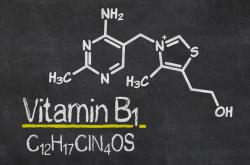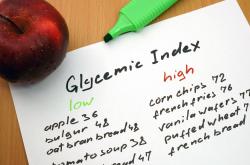Sugar Addiction: The Sweet Mystery Fatigue Factor
One of the most common experiences for people suffering from various forms of fatigue is the recurring craving for sugar and sugary foods and drinks. While these cravings are often symptomatic of fatigue, an underlying sugar addiction can actually be a major factor in making you tired in the first place.

In past eras, dietary habits were far different than what we see in today’s advanced societies. There was more of a reliance on whole foods, since modern processing and preservation techniques had not yet been invented. And while many of the people of those eras suffered from a variety of different ailments, as well as shortened life expectancies, they seldom had an overwhelming need for sweetened foods like we see with so many people today.
Now, this is not to suggest that the occasional sweet treat is a horrible indulgence. After all, there is no denying that sugary foods are among life’s most elegant pleasures. Moreover, sugar has certain very real mood and energy-lifting benefits that help to enhance its ability to provide us with that momentary pleasure. However, there is also no denying that the current state of modern man’s diet relies far more heavily than it should on highly processed, sugar-enhanced products that are anything but beneficial for us. The prevalence of sugar in our diets has led to what can only be described as a virtual pandemic of sugar dependency.
Sugar Addiction Is Everywhere!
It almost doesn’t matter what type of processed food you buy these days; much of it has sugar included in the ingredients. Sugar appears in many processed breads, beverages, and even milk. So, while many people have reduced the amount of granular sugar they use in their meal preparation, the actual amount of sugar they receive from other sources continues to rise. At the same time, obesity rates are on the rise too, as are conditions such as diabetes and hypoglycemia.
The addiction aspect of sugar consumption is the direct result of the way that sugar interacts with your body’s systems. Medical scans indicate that the brain’s response to sugar is virtually identical to its response to cocaine. It increases the amount of blood that is sent to the brain, releases dopamine, and provides a temporary feeling of euphoria. Even more disconcerting is the way in which the body can develop a tolerance for sugar just as it does with various drugs. This causes you to need ever increasing amounts of sugary foods and drinks just to get the same “high” that you received from your prior consumption of the substance.
Beware of Fructose!
Amid all this confusion about sugar, it is easy to miss out on one simple truth: the even greater danger for most people is the way in which manufacturers include fructose in so many common food products these days.
Glucose is the preferred sugar for the human body. It is the sugar that the body is most adept at using and storing for future energy needs.
Fructose, on the other hand, is the substance that commonly appears in processed foods and drinks. The body has no use for it as an energy source, and so it has to be converted to glucose, with any excess being shunted off to the liver where it is converted into an acid that can cause all kinds of health problems.
So, while sugar can be addictive, fructose is just downright dangerous! With that said, fruit and other natural sweets are healthier choices for most dieters, and especially those who are suffering from fatigue.
How Sugar Addiction Affects Fatigue
It is well-recognized that there is a cycle to sugar consumption that runs from high to low periods of energy. Sugar produces a noticeable increase in energy when it is first consumed, but that increase is only temporary and is always followed by a marked decrease after the digestive system expends all its energy converting those sugars. That decrease in energy causes a system crash. Sadly, most people respond to that crash by eating something sweet, in an attempt to gain access to the quick energy burst they think they need to make it through their day.
The real serious level of fatigue can come from the net effect of this cycle of sugar high and lows. Over time, it can lead to a condition such as hypoglycemia due to overactive hormone production in the adrenal glands and pancreas. You see, when your blood sugar levels become unstable, the body responds by unleashing waves of hormones to normalize the situation. The pancreas is particularly vulnerable as it mass produces insulin as a natural reaction to high levels of blood sugar. As that happens, the pancreas targets not only sugar, but the very glucose that is needed for energy production.
The Pancreas vs the Adrenals
The problem is that this lowering of the blood sugar level to an extreme level incites the adrenal glands to produce cortisol to help convert glycogen into the glucose needed to stabilize the situation. As that happens, the pancreas responds by producing more insulin, which again lowers the blood sugar to an unnatural low level. The adrenals respond again. The pancreas retaliates. Before you know it, those critical body systems are caught in a war for control over the blood sugar level – and it’s a war that neither they, nor you, can win. In the end, all you end up with are depressed adrenals and a dysfunctional pancreas, as well as severe fatigue.
How to Deal With Sugar Addiction
Obviously, the end result of this battle to manage sugar is something that you should want to avoid at all costs. But how can you do that? Given the sheer volume of sugar present in most processed food and drinks, is it even possible to overcome sugar addiction and win the fight against sugar-induced fatigue? It is, but it won’t be an easy task to achieve without some sacrifice on your part.
Sugar addiction can be difficult to break, but the benefits of success far outweigh any temporary discomfort. Here are some key things to focus on as you attempt to recover from this dependency and provide your body with the relief it needs:
- Focus on stabilizing your blood sugar, using multiple meals with small portions sizes.
- Include green vegetables in every meal, as well as vegetable shakes if you can stomach them.
- Stay hydrated. Often times, sugar cravings are really a signal that your body needs more water.
- Eat whole foods and eliminate as many processed foods as possible from your diet.
- Include exercise to increase your serotonin levels. Many sugar cravings are just the body’s way of getting you to elevate serotonin.
It takes time to get used to these changes, but the end result is well worth the effort you expend. Of course, you can expect some degree of increased fatigue as you first wean yourself from sugar dependency, but you can stifle many of your cravings with dietary fat, and enhance energy through the ingestion of complex carbohydrates and lean protein sources. Eventually, your energy levels will rise and you’ll wonder why you ever spent so much time focusing on sugary foods!
You might also be interested in:
- Low Blood Sugar (Hypoglycemia). http://www.chronicfatigue-help.com/five.htm
- Sugar Cravings & Adrenal Fatigue. http://www.livestrong.com/article/295375-sugar-cravings-adrenal-fatigue/
- Sugar Addiction. http://www.drlwilson.com/articles/SUGAR%20ADDICTION.htm
- 10 Secrets for Ending Your Sugar Cravings for Good. http://bodyecology.com/articles/10-secrets-for-ending-sugar-cravings.php
- Hypoglycemia. http://drhoffman.com/article/hypoglycemia/
- Sugar Addiction: Understanding the Cause to Help Create a Solution. http://www.fitday.com/fitness-articles/nutrition/healthy-eating/sugar-addiction-understanding-the-cause-to-help-create-a-solution.html#b
- http://www.nydailynews.com/life-style/health/researcher-sugar-addictive-cocaine-obesity-diabetes-cancer-heart-disease-article-1.1054419
- 5 Clues You Are Addicted To Sugar. http://drhyman.com/blog/2013/06/27/5-clues-you-are-addicted-to-sugar/



















Leave a comment